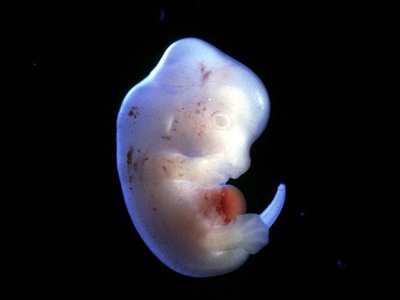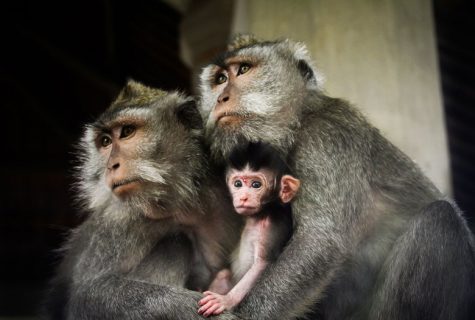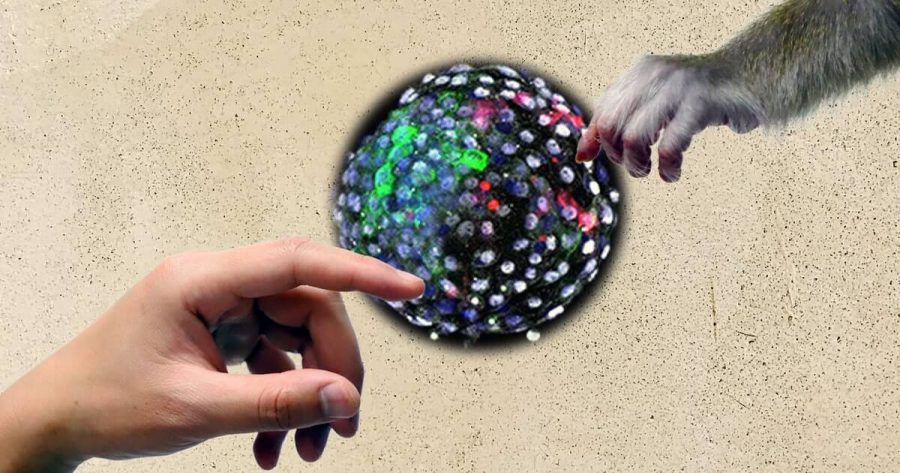Part-Human Part-Monkey Embryos
Photo Courtesy of Genetic Literacy Project
An Embryo With Both Human and Monkey Elements
May 1, 2021
On April 15th, scientists successfully added human stem cells into monkey embryos. This seems really odd, but it’s for good reason. Scientists hope to one day create livestock that can grow human transplant organs and help study human diseases better and this is a big step in that direction.

A team of Chinese and U.S. reporters claim that the human/monkey chimeras survived up to 20 days in their petri dishes, which is a huge accomplishment.
The concept of part human part monkey embryos seems cool at first, but not everyone is happy about it. “This sort of research raises ethical concerns that can make a person queasy,” says Nita Farahany, the founding director of the Duke Initiative for Science and Society in Durham, North Carolina.

“People still recognize there’s a divide between humans and non-human primates, and when you start to introduce human cells into a non-human primate like a monkey, people start to think, what is it that you’re creating?” Farahany says. “People imagine where that kind of research could go if we’re able to overcome a lot of scientific hurdles between here and here, and I think that’s why people start to become uncomfortable.”
Though it’s a little hard for some to grasp ethically, the medical benefits from this research can change the world. According to Professor Juan Carlos Izpisua Belmonte, who played a role in creating the first human pig hybrid, “These chimeric approaches could be really very useful for advancing biomedical research not just at the very earliest stage of life, but also the latest stage of life.”
The possibilities of human hybrids are infinite. One day they might be able to eliminate human test trials for drugs and use animals to accurately depict human symptoms and newer drugs would be safer. This could bring us closer to finding cures to illnesses like cancer, AIDs, diabetes, and the common cold. The sky’s the limit if scientists can figure out how to create a human chimera that lives long enough to grow organs.









Shipp • May 1, 2021 at 9:41 am
Wow! I can’t believe this is really happening. Didn’t this type of thing happen in a movie?